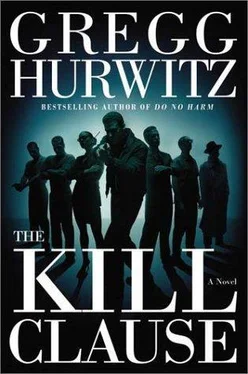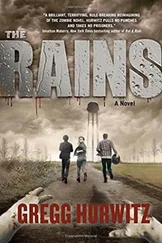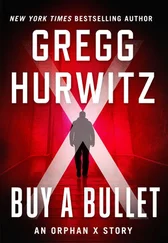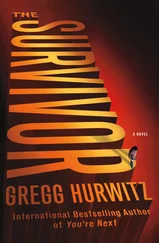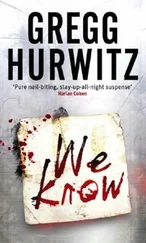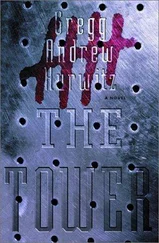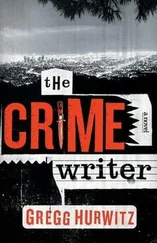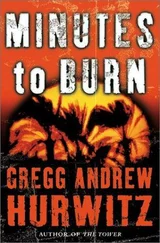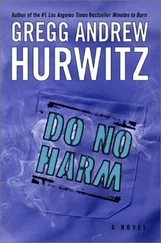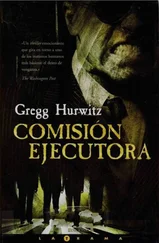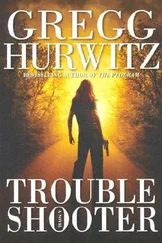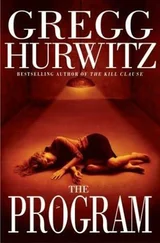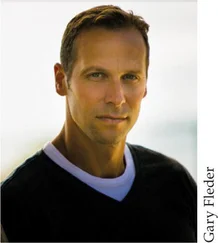Gregg Hurwitz - The Kill Clause
Здесь есть возможность читать онлайн «Gregg Hurwitz - The Kill Clause» весь текст электронной книги совершенно бесплатно (целиком полную версию без сокращений). В некоторых случаях можно слушать аудио, скачать через торрент в формате fb2 и присутствует краткое содержание. Жанр: Триллер, на английском языке. Описание произведения, (предисловие) а так же отзывы посетителей доступны на портале библиотеки ЛибКат.
- Название:The Kill Clause
- Автор:
- Жанр:
- Год:неизвестен
- ISBN:нет данных
- Рейтинг книги:4 / 5. Голосов: 1
-
Избранное:Добавить в избранное
- Отзывы:
-
Ваша оценка:
- 80
- 1
- 2
- 3
- 4
- 5
The Kill Clause: краткое содержание, описание и аннотация
Предлагаем к чтению аннотацию, описание, краткое содержание или предисловие (зависит от того, что написал сам автор книги «The Kill Clause»). Если вы не нашли необходимую информацию о книге — напишите в комментариях, мы постараемся отыскать её.
The Kill Clause — читать онлайн бесплатно полную книгу (весь текст) целиком
Ниже представлен текст книги, разбитый по страницам. Система сохранения места последней прочитанной страницы, позволяет с удобством читать онлайн бесплатно книгу «The Kill Clause», без необходимости каждый раз заново искать на чём Вы остановились. Поставьте закладку, и сможете в любой момент перейти на страницу, на которой закончили чтение.
Интервал:
Закладка:
Tim set it back down. “What is this?”
“If you’re interested, be at this address tomorrow evening at six o’clock.”
The man headed for the door, and Tim hastened to keep up. “If I’m interested in what?”
“In being empowered.”
“Is this some sort of self-help crap? A cult?”
“Christ, no.” The man coughed into a white handkerchief, and when he lowered his hand, Tim noticed specks of blood on the cloth. The man crumpled it back into his pocket quickly. He reached the front door, turned, and offered Tim his hand. “It’s been quite a pleasure, Mr. Rackley.”
When Tim didn’t shake his hand, the man shrugged, stepped out into the rain, and quickly disappeared into the haze.
•Tim did his best to straighten up the living room. He realigned the books, repaired one of the broken shelves with wood glue and C-clamps, then patched the holes in the walls with squares of drywall, which he fastidiously sized and inserted. His back felt out of whack from his fight with Dray, so he hung upside down a few moments from his gravity boots in the garage, arms folded across his chest like a bat, wishing he had a cityscape view rather than one of the oil-spotted garage floor. He unhooked himself from Dray’s pull-up bar, cracked his back, then returned inside and vacuumed up the shattered glass, going over the area twice to make sure he picked up all the slivers. Though he tried to ignore the business card on the coffee table, he was aware of it the entire time.
Finally he returned to the table and stood over it, studying the card. He ripped it in half and tossed it into the garbage can beneath the kitchen sink. Then he flicked off the lights and sat staring out at the rain working on the backyard, turning the neat garden to mud, scattering leaves across the lawn, pooling in black puddles.
Dray didn’t acknowledge him when she returned home hours later, and he didn’t turn around. He wasn’t even sure she saw him in the darkness. Her steps were heavy and uneven down the hall.
Tim sat a few minutes more, then rose and retrieved the ripped business card from the trash.
12
TIM did a drive-by without slowing. A large Tudor house, not quite a mansion, loomed behind a wrought-iron fence. Beside the detached three-car garage, a Toyota truck, a Lincoln Town Car, and a Crown Vic were parked next to a Lexus and a Mercedes. Two of the three chimneys issued smoke, and light seeped around the drawn curtains of the downstairs windows. A gathering. And a demographically mixed one at that. The luxury cars had been there when Tim had taken his last drive-by a few hours ago, but the American metal had arrived more recently.
The house had checked out as belonging to the Spenser Trust, and further digging, predictably, had yielded little. Trusts are notoriously difficult to trace, as they aren’t filed anywhere-the paperwork exists only in a lawyer’s or accountant’s file cabinet. The trustee, Philip Huvane, Esq., was a partner in an offshore law firm on the Isle of Wight. Tim’s contact with the IRS had said he couldn’t get back to him with more specific information until tomorrow, and he wasn’t optimistic he’d have anything useful even then.
Tim turned the corner and drove around the block. A conservative, moneyed community located south of Hollywood and west of downtown, Hancock Park is Los Angeles’s best stab at East Coast sophistication. The enormous houses Tim watched fading into the dusk had been built mostly in the 1920s by rich WASPs, after the infiltration of the middle class had made Pasadena less palatable. Despite the imperious brick mailboxes and staid English exteriors, the houses still feel a touch gritty and oddly free-spirited, like a nun smoking a cigarette. In Los Angeles there’s a new twist to every habit.
When Tim came up to the house again, he pulled into the drive. He pushed a button on the call box, and the large gates swung open. He put the Beemer in park, preferring to leave it outside the gates in case he needed to make a hasty retreat, slung a black bag over one shoulder, and walked to the front door. Oak, solid core. Doorknob probably weighed ten pounds.
Tim adjusted his Sig, ensuring that it remained snugly tucked into his jeans over his right kidney, handle flared outward to precipitate a fast draw. He’d looped a few rubber bands around the fore end of the grip just below the hammer so the pistol couldn’t slip beneath his waistband. It didn’t sit on him as well as his. 357.
He raised the knocker, a brass rabbit that looked uncomfortably elongated, and let it fall. It sent an echo into the house, and the murmur of conversation inside ceased.
The door swung open, revealing William Rayner. Tim covered his surprise quickly. Rayner wore an expensively tailored suit, much like the one he’d had on in the television interview last night, and he held a gin and tonic, from the smell of it.
“Mr. Rackley, so glad you decided to come.” The man offered his hand. In person his face had a decidedly mischievous cast. “William Rayner.”
Tim pulled the proffered hand aside with his left and tapped Rayner’s chest and stomach with the knuckles of his right, checking for a wire.
Rayner regarded him with amusement. “Good, good. We value caution.” He stepped back, letting the door swing with him, but Tim didn’t move from the porch. “Come now, Mr. Rackley, we certainly didn’t invite you all this way to beat you with pipes.”
Tim entered the foyer warily. It was a dim room, heavy with original oils and dark wood. An ornately carved newel post marked the base of a curving staircase carpeted with a brass-pinned runner. Without another glance at Tim, Rayner walked ahead into an adjoining room. Tim circled the foyer before following.
Five men-including Rayner-and a woman awaited him, sitting in elaborate armchairs and on a seasoned leather club sofa. Two of the men were twins in their late thirties with hard blue eyes, thick blond mustaches, and Popeye forearm bulges covered with reddish-blond hair. They were unbelievably sturdy, with action-figure bulk, barrel chests, and sharp-tapering lats. About average height-maybe five-ten. Though they were nearly identical, some ineffable quality gave one a harder, more focused orientation. He was holding a glass of water but sipping it like a scotch. Probably spoke fluent Twelve-Step.
A slight man with too-thick eyeglasses in fat black frames sat perched on the couch. His features were rounded and yielding, like those of a cloth doll. His Magnum, PI, shirt screamed out in the muted furnishings, as did the sheen of light from his bald, pointed head. He had no chin to speak of and an extremely slight nose. His upper lip bore the signs of a repaired cleft palate. His small hand swept up from between the cushions of the couch, knuckling his glasses back up the almost nonexistent bridge of his nose. Beside him sat Tim’s visitor from last night.
The woman sat in one of the armchairs directly facing Tim, framed perfectly by the fireplace behind her. She was primly attractive; a thin button-up sweater showed off a lean, feminine build, and her glasses looked as if they’d been plucked off the face of a 1950s secretary. She wore her hair up, neatly styled and fixed in place by a pair of black chopsticks. The youngest of the group, she looked to be in her late twenties.
All around them rose bookcases, stretching from the floor to the twenty-foot ceiling. A sliding library ladder hooked onto a brass bar that ran the length of the far wall. The books were organized by set and series-law publications, sociology journals, psych texts. When Tim saw the rows of Rayner’s own books, he recognized this as the library from which KCOM had broadcast Rayner’s interview last night-it only looked like a set. His books all bore titles reminiscent of network movies from the eighties-Violent Loss, Thwarted Vengeance, Beyond the Abyss.
Читать дальшеИнтервал:
Закладка:
Похожие книги на «The Kill Clause»
Представляем Вашему вниманию похожие книги на «The Kill Clause» списком для выбора. Мы отобрали схожую по названию и смыслу литературу в надежде предоставить читателям больше вариантов отыскать новые, интересные, ещё непрочитанные произведения.
Обсуждение, отзывы о книге «The Kill Clause» и просто собственные мнения читателей. Оставьте ваши комментарии, напишите, что Вы думаете о произведении, его смысле или главных героях. Укажите что конкретно понравилось, а что нет, и почему Вы так считаете.
